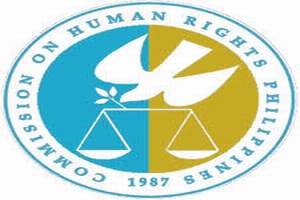From the United Nations UN Website
links: http://www.un.org/apps/news/story.asp?NewsID=44140&Cr=moldova&Cr1=#.UR6cVfKUKhs
UN rights chief urges action in disputed areas with first report on Transnistrian region
“Human rights do not have any borders. It is vital to address underlying human rights issues in disputed territories, regardless of the political recognition or the legal status of a territory,” High Commissioner for Human Rights Navi Pillay said in a press release.
“We should neither forget nor neglect the human rights of people who live in areas which, for various reasons, are controlled by de facto authorities,” she added, calling on the international community to support the deployment of human rights experts to disputed territories.
Human rights do not have any borders. It is vital to address underlying human rights issues in disputed territories, regardless of the political recognition or the legal status of a territory.The Transnistrian region, settled between Moldova and Ukraine, declared independence in 1990 and witnessed months of fighting in 1992. The region has not been under the effective control of the Government of Moldova since 1992.
“People living in disputed territories, where legitimacy of control over a territory, security, development and humanitarian concerns are frequent, often lack or have very limited access to effective legal remedies,” said Ms. Pillay.
The report’s author – independent expert Thomas Hammarberg – visited the region three times between May and November 2012.
He recommended a thorough reform of the penitentiary system in the Transnistrian region, including a review of the number of prisoners and an abolition of inhuman disciplinary measures.
“The human rights expert also asked the de facto authorities to give high priority to measures against trafficking of human beings and its root causes,” stated the news release from Ms. Pillay’s office (OHCHR).
The report also urges a review of the local laws for consistency with international human rights law and calls on the de facto government to develop a plan of action to address the recommendations.
Ms. Pillay visited Moldova and the Transnistrian region in November 2011. During that time, she held meetings with the de facto authorities on issues concerning violations of minimum international standards relating to conditions in places of detention, as well as persistent allegations of arbitrary detention, torture and ill-treatment in custody.
The High Commissioner praised Mr. Hammarberg’s report for being apolitical. “Mr. Hammarberg’s research in the Transnistrian region clearly demonstrates how the deployment of technical human rights experts can truly benefit people on the ground, without having a bearing on issues of political recognition or the legal status of a territory.”
UN Website
links:
http://www.un.org/apps/news/story.asp?NewsID=44140&Cr=moldova&Cr1=#.UR6cVfKUKhs
Human Rights Advocacy Promotions | Human Rights
Home - Human rights Promotions Website
Home - Human rights Promotions Website
PROTECTION AND PROMOTION OF HUMAN RIGHTS
———————————————————————————————–
————————————————————
——————————
————————————————————
——————————


























































0 comments:
Post a Comment